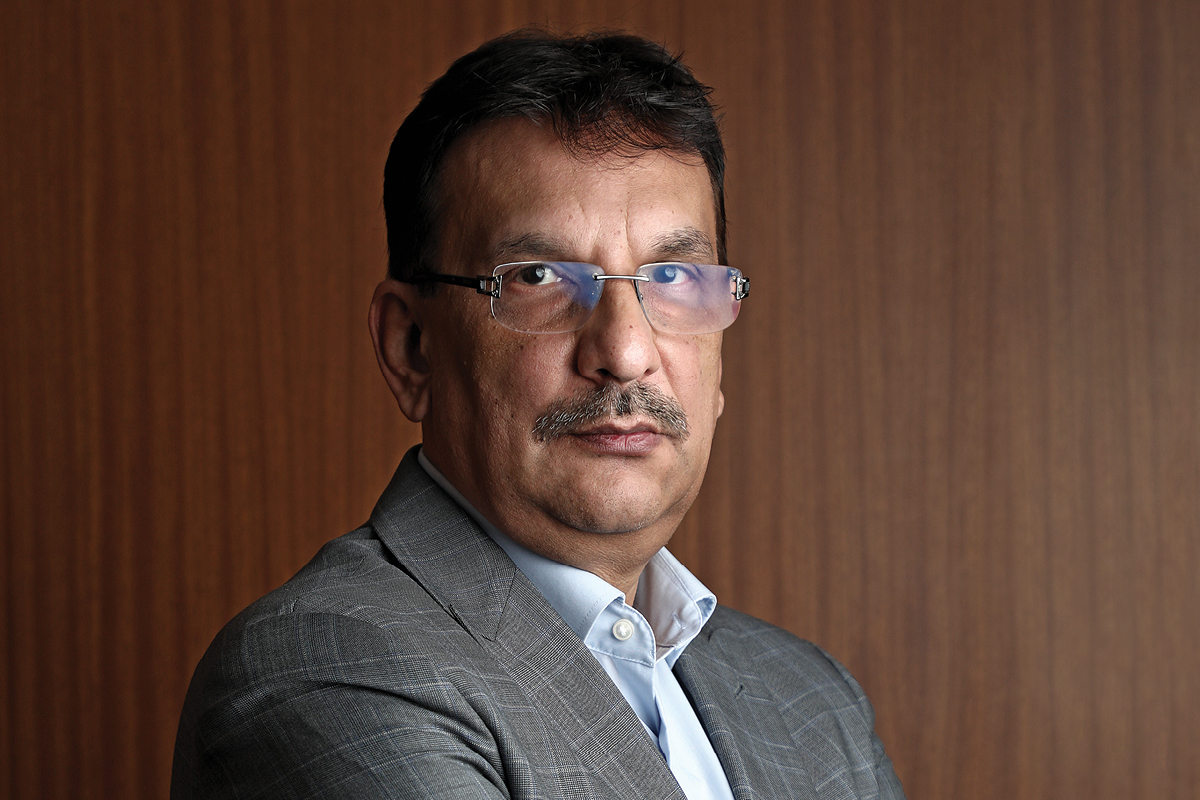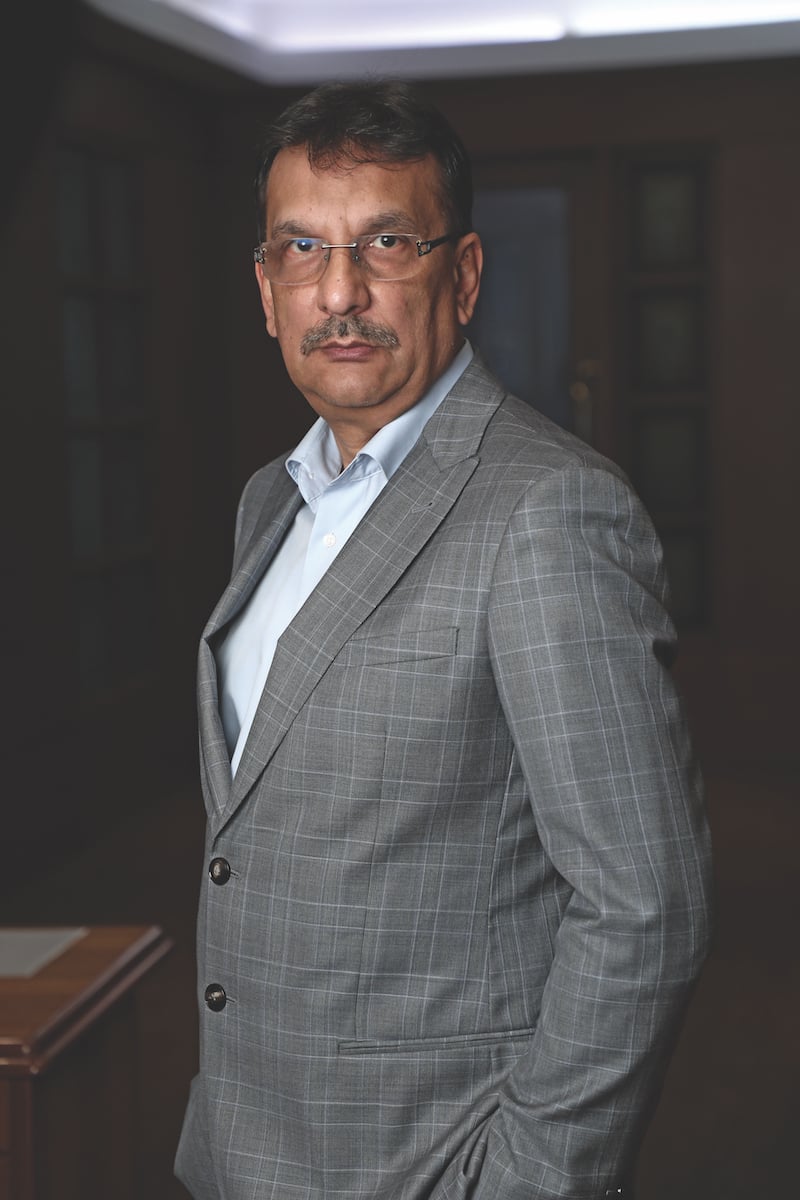“We believe in differentiation through innovation”: Sanjeev Vasdev
Flash Electronics was once a small player, but founder Sanjeev Vasdev is set on making a big impact.
It was 30 years ago, in 1989, when the General Manager of Bajaj Auto, the world’s third-largest manufacturer of motorcycles, wanted to make the first purchase order from Sanjeev Vasdev’s new machining company. He had developed the "flasher", an electronic part to control storm indicator signals. "He asked what the name of my company was and, at the time, I didn’t even have a name for it yet," Sanjeev recalls.

"The first name which came to my mind was Flash Electronics. So that was the start for me." Sanjeev wanted to create something different. He felt that many companies at that time were trying to copy each other and there was a lack of innovation. "I realised that having a different business model or providing different products would provide a unique solution," he says. "However, I was always hampered because of my financial condition. I was just a new entrant, and I had no money."
Sanjeev’s greatest challenge was to raise finances, which didn’t happen until later in his career. For many years – from 1989 to 2006 – he was a small, niche player. From a meagre US$3 million turnover, the group has crossed a US$150 million turnover.
In more recent times the company has expanded its product range and now manufactures more than 125 products. "After so many years, I decided to ensure that I raised enough money so I could achieve my dreams and expand into what I really wanted to do, and stand out from other companies," he reflects. "I had the technology and had developed a proper R&D background.
"It was a difficult task for me because everything looks good on a project plan or presents well on an Excel sheet, but to make a large-scale project happen with no experience was a challenge. But we delivered. I think we’ve done well for ourselves."
Learn and earn
Flash Electronics is forming its own trust to focus on education, health and hygiene. The Maharashtra Government launched an education scheme, where the company can hire apprentices who earn money by working on its machines. "We give them an education as well, so they earn money and learn at the same time," Sanjeev says.
The government scheme enables companies to retain people for three years. "During this time, we can train and help make people self-sufficient in terms of earning," Sanjeev explains. "We can also offer them long-term jobs or pay them enough to find jobs elsewhere. This is something we have been giving many of our employees who work under the learn and earn scheme here."
Future-proofing upgrades
Flash Electronics runs on a continuous schedule of updates. "When it comes to electrical and electronics, there are proprietary parts that need a constant upgrade in terms of technology," Sanjeev says. "We also have to ensure that we have strong R&D. Today, if I’m working on projects, they are projects that we won’t see until 2020 or 2021. We are working on projects that could come to fruition in 5–7 years from now. We have to plan far in advance, which can be challenging."

The Indian Government has been instituting emission standards across six stages, called the Bharat Stage Emission Standards, to combat pollution, with the final step to be implemented by 2020.
These regulations, along with rising interest in electric vehicles, have prompted Flash Electronics to manufacture products that would cater to emission norms.
Sanjeev decided he didn’t just want to make a few parts and rather wanted to provide a complete solution for the final, Stage VI emission standard.
"It was not easy because we are competing against some industry giants," he says.
"Though we were nowhere near their size, we still felt that we could play an important role if we could develop a solution.
The solution needed experience because people are not willing to take chances with these kinds of products when their vehicle performance depends on them.
So, we took an opportunity in October 2015 to acquire a company in Germany called BING Power Systems.
"BING Power Systems helped us manufacture these Stage VI emission parts, but also gave us customer acquisitions for our other plants in India to cater to those kinds of products, which BING could not cater to. It has been a good acquisition for us. And when it comes to the electric vehicle platform, we are strong. In fact, in 2007, we were one of the first companies in electrical and electronics to get the DSIR (Department of Scientific and Industrial Research) recognition for R&D. Now, many companies have DSIR recognition. In 2007 it was new and challenging to get. We really worked towards that."
Delighting the customer
Sanjeev believes it is imperative to meet customer expectations. His view is that businesses must address every concern, which can be done only with in-depth knowledge. "Meeting customer expectations can only be done if you have created a strong team who know their products inside out," he says.
"The success of any organisation is in its team."
"The team should be motivated enough to take the company forward. The success of any organisation is in its team, which you must create and retain." The core values of Flash Electronics are mainly innovation and working towards customer "delight". With India’s new emission standards, the company aims to keep consumers happy with low costs.
"The customer today needs a product that meets its specifications," Sanjeev says. "The product must meet our requirements, but it also must meet their cost target because the cost is going to be one of the key factors going forward. Technology costs may increase the value of a two-wheeler today by nearly 5,000–10,000 rupees (US$70–$150)."
Going forward, the company will continue to keep costs low and operate with efficiency. "We believe in creating that differentiation by getting the right technology through innovation or through our collaborators, producing it in the most effective way," Sanjeev explains. "To compete with bigger companies, we must balance the costs. We have created a transparent platform with all our customers. Being transparent gives confidence to the customer that, yes, this company is serious about delivering an innovative but cost-effective product."
Proudly supported by: